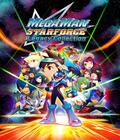Sony has many things, but it's never had its own mascot, like Sonic the Hedgehog or Mario. Some attempts were made, like longtime Sony faithful Crash Bandicoot, but none have quite hit the mark. The PS5's built-in app, Astro's Playroom, gave us a cute little robot named Astro who guided players through the features of the PS5 in a fun little mini-platformer. Astro Bot is his second outing, this time in a more fully-fledged game, and it is just as fun, if not more so. It shows that the little bot has the potential to finally give Sony a mascot of its very own.
Astro Bot's plot is as straightforward as it is silly. A group of adorable robots is traveling through space in a PS5-shaped spaceship. They're suddenly accosted by a giant space bully who breaks their ship, steals parts from it, and sends the entire army of minibots scattered to the stars. It's up to Astro Bot to repair the PS5, recover his friends, and send the space bully packing.
The plot is an excuse to make a huge celebration of the PlayStation's history and its many franchises. At times, it can feel too self-worshipful, which can make certain things feel forced, but largely, it captures the almost Nintendo-esque feel of, "Look at all our wonderful toys." The main bosses feel a little generic; they could use more of a distinctive design instead of feeling largely like something you could see in any game.
At its heart, Astro Bot is a 3D platformer very much in the vein of Mario Galaxy. The adorable little bot can jump, punch, spin and use the lasers in his feet to glide and attack enemies beneath him. It's a simple toolkit the game puts to great effect. Every tool has multiple uses, and they all work together. The spin attack isn't just good for clearing space, but it can also be used to unscrew nuts or dig into sand. The lasers don't just let you glide and attack, but they can also be used to carve away land beneath you. This can be a plus or a minus, depending on how precarious your situation is.
What makes the simple gameplay work is that each level in the game is different. In one level, you might be running through an active volcano and need to use water to cool off lava. In another, you'll explore an underwater area, and in a third level, you can swap between day and night, which also causes the levels to rotate. Astro Bot is constantly surprising and exciting, and it never feels like it rests on its laurels. I enjoyed every level, and none of them felt repetitive.
The game uses a system similar to the 3D Mario titles, so Astro Bot can find different temporary upgrades throughout the level. Upgrades range from a powerful charge attack, the ability to rocket into the air, a vacuum to suck up various materials to create platforms, and even a suit of armor that turns you into an invincible rolling ball. These power-ups are limited by stage, but they're often put to great use. Take the armor. One stage might have you using its fireproof attribute to scoot through flames and use yourself as a makeshift cannonball. Another might have you roll down a spike-covered ramp, avoiding enemies and dangers along the way.
There's not a huge number of different enemy types, but they are used well. The default enemy robots are not threatening, but they tend to have different outfits for each stage. They might be wearing Viking clothes in a cold wasteland or snorkels in an underwater level. The higher-tier enemies tend to require a specific method to beat them; it's not very difficult, but it adds some stress to moments when you have a few enemies rushing at you at once.
I can't praise the level design enough. While it is an easy game, it has a special quality that the best platformers have, where it may be easy but is still fun. There's strong encouragement to explore the levels. Each level contains multiple hidden items, including puzzle pieces to unlock game features and hidden bots that serve as the game's version of Mario's Stars. Several stages also have secret exits, which unlock new levels in a bonus world.
The boss battles are also a delight. They're largely creative and engaging fights that make good use of the core mechanics. There are a number of them, and thankfully, they are not predictable. While there's also one "big" boss fight at the end of every galaxy, there are plenty of minibosses who appear out of nowhere to add spice to a level. Astro Bot is excellent about making those encounters feel like a surprise, and there's very little recycling of concepts.
The aforementioned bots are something you have to collect to progress. You don't need all of them. There are about 300 in the game, and you can reach the last boss with around 200. Collecting them is important not just because it's fun, but also because many of them are wonderful references to the massive backlog of PlayStation favorites. We've been asked not to spoil them so people can be surprised, but I can say that in addition to the most obvious ones, there are a ton of obscure characters I didn't expect to see. Each one is treated with the same loving care as the big names.
Each bot you collect is also brought back to your home base. This is part of progression, since the base has a number of areas that you can't reach before obtaining a certain number of bots. You can use an in-game gacha machine to unlock special accessories for each character. The accessories are not only cute inside jokes, but they add also several new animations to each bot, which makes the base feel more alive. There's also a "safari" area where you can take pictures with animals if you'd like.
Overall, Astro Bot is clearly aimed at kids as well as adults, and the basic platforming and puzzles are on par with other kid-friendly platformers. However, there are hidden challenge levels that require players to complete difficult areas in one try without checkpoints. These levels are probably enough to get your blood pumping, even if the rest of the game seems too easy.
The only potential flaw with Astro Bot is that it's relatively short. If you're rushing to finish the plot and nothing else, it'll probably take about seven hours, while doing everything in the game will add a few hours. The runtime is almost entirely fun gameplay and nothing else. There's very little filler or wasted time, and you hop in and start having fun after the opening cut scene. It makes good use of its length, and a short runtime shouldn't scare off players.
Astro Bot is an absolute joy in motion. The environments are colorful, bright and distinctive. It trends toward using the PlayStation aesthetic for most of the level, but it mixes up things enough that it doesn't get old. The animations are beautiful, and there are tons of lovely touches to help the world feel more alive. It's a gorgeous game that makes fantastic use of the simplistic designs of Astro Bot and his pals. The music is excellent. There's a huge variety of songs, with most stages having distinct songs; several even have multiple songs in one stage. You might get a haunting melody, an out-of-nowhere musical number or a pulse-pounding boss theme; almost all of them rock.
The highest praise I can give Astro Bot is that it genuinely feels like PlayStation has its own Mario now. The gameplay, creativity and charm are competing with Nintendo's powerhouse with wonderful level design and engaging gameplay from start to finish. Only the relatively short runtime is a potential negative, and even that feels like a minor complaint. If you're a longtime PlayStation fan looking for a rush of nostalgia, a parent looking for a good game for their kids, or you just want a darn fun platformer, Astro Bot is a must-play.
Score: 9.0/10
More articles about Astro Bot











 Charge into a brand-new, supersized adventure with Astro across more than 50 exciting and diverse worlds.
Charge into a brand-new, supersized adventure with Astro across more than 50 exciting and diverse worlds.




